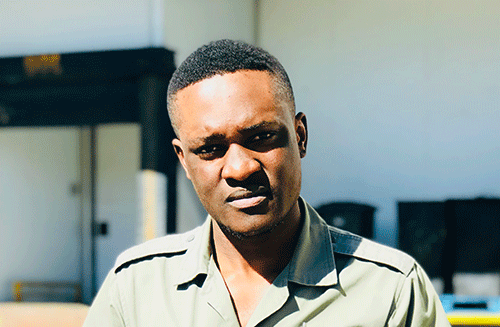Hosea Shishiveni Neumbo
On 8 February 2019, a promising political party (Landless People’s Movement) was born.
According to the LPM, the party was created to take over the government and form an alternative caring government for everyone, putting people first and bringing back their dignity.
The party is primarily formed to tackle land issues being experienced in Namibia.
The urban land crisis, land reform and agrarian reform preoccupy the daily struggles of the LPM.
Namibia has been dominated by chronic viruses of tribalism, nepotism and favouritism, which benefited or still benefit one or two tribes out of all tribes we have in Namibia.
The level of inequality in Namibia has created hostile situations in our political arena, which saw various political leaders abandoning their political parties to join different parties, or form their own.
How do we address this without offending the majority of Namibians who dislike corruption, irrespective of tribe and region?
How can we capture the ugly face of tribalised, politicised and regionalised corruption?
Without political parties, modern representative democracy is not conceivable.
Only the parties ensure the citizens are permanently capable of acting politically.
They articulate and integrate different interests, visions and opinions.
They are also the main source for the recruitment of political elites.
To participate successfully in elections, the political parties have to be the voice of broad sectors of society.
Associations, social organisations or citizens’ initiatives normally concentrate more on individuals and a limited scope of issues.
This is why movements such as Shut-it-all-down, LGBTQ and Affirmative Repositioning (AR) are ineffective today because they are designed for specific issues that limit them from serving the best interest of the whole society.
Not everyone wants to be gay or smoke marijuana in Namibia.
How do you expect everyone to support the legalisation of marijuana and LGBTQ?
The nation is hungry, and people are unemployed. They need food, jobs and plots for houses.
What will they benefit from LGBTQ?
Collective movements that will tackle corruption, underdevelopment, inequality, high tuition fees, the unemployment rate, land and housing issues, poverty, press freedom, the legalisation of marijuana, abortion and LGBTQ, and other topical issues will emerge victorious rather than an isolated movement.
Political parties, in contrast, are expected to take positions on all those questions and topics that are related to public order and the organisation of society.
We will not be surprised if AR forms a coalition with NEFF because they are incapacitated to solve some of the issues as an isolated movement that is predominantly formed for land.
The LPM has the chance to survive a political blow that killed other political parties like COD and CANU – only if they put into consideration all the 14 regions.
Namibian political parties are competing with one another for the best ways to resolve political problems.
They compete for influence and power.
Without the power to enforce a political vision, it is not possible to organise a society.
Internal discussions and conflicts within as well as between the parties accompany this contest for ideas and power.
The LPM contested in the 2019 election – and their results were not that bad for a beginner.
Imagine if they were not ethnically or regionally- centred.
They could have won massively.
The only effective way the LPM can successfully contest the official opposition place is by decentralising their focus to all 14 regions.
Sticking to regions that are in the southern part of Namibia and central towns like Windhoek, Walvis Bay and Swakopmund will not help the party to be victorious in the next parliamentary elections.
The majority of voters are in the northern parts of Namibia.
If the LPM still stands on the notion of serving landless people, they might fail to register votes from the northern part of Namibia.
Land has never been and will never be an issue in the whole Ovambo areas, Kavango and Zambezi.
As a matter of fact, land is cheap and affordable in the Ovambo areas as opposed to owning land in the capital city.
It is sad and hard to believe a political party that was formed for the people of Namibia and to bring change in the country did not have candidates in all the constituencies that are in the northern areas for the 2020 local and regional elections.
That is a pure indication of regionalism and tribalism, which can also be evidenced by the incident that happened in May 2021, where the chairperson of the Maltahohe village council (LPM) was seen throwing stones into the trenches of a council development project, arguing why the contractor employs Oshiwambo people and Swapo members who are not even her sympathisers in the Hardap region.
The heart of voters is in the north – and the 2024 Presidential and Parliamentary elections are around the corner.
The LPM needs to move from an ethnic-based party to a nationalist political party.
Tribalism and regionalism will haunt the LPM in future. Thus, the party is advised to become a nationalist party.


